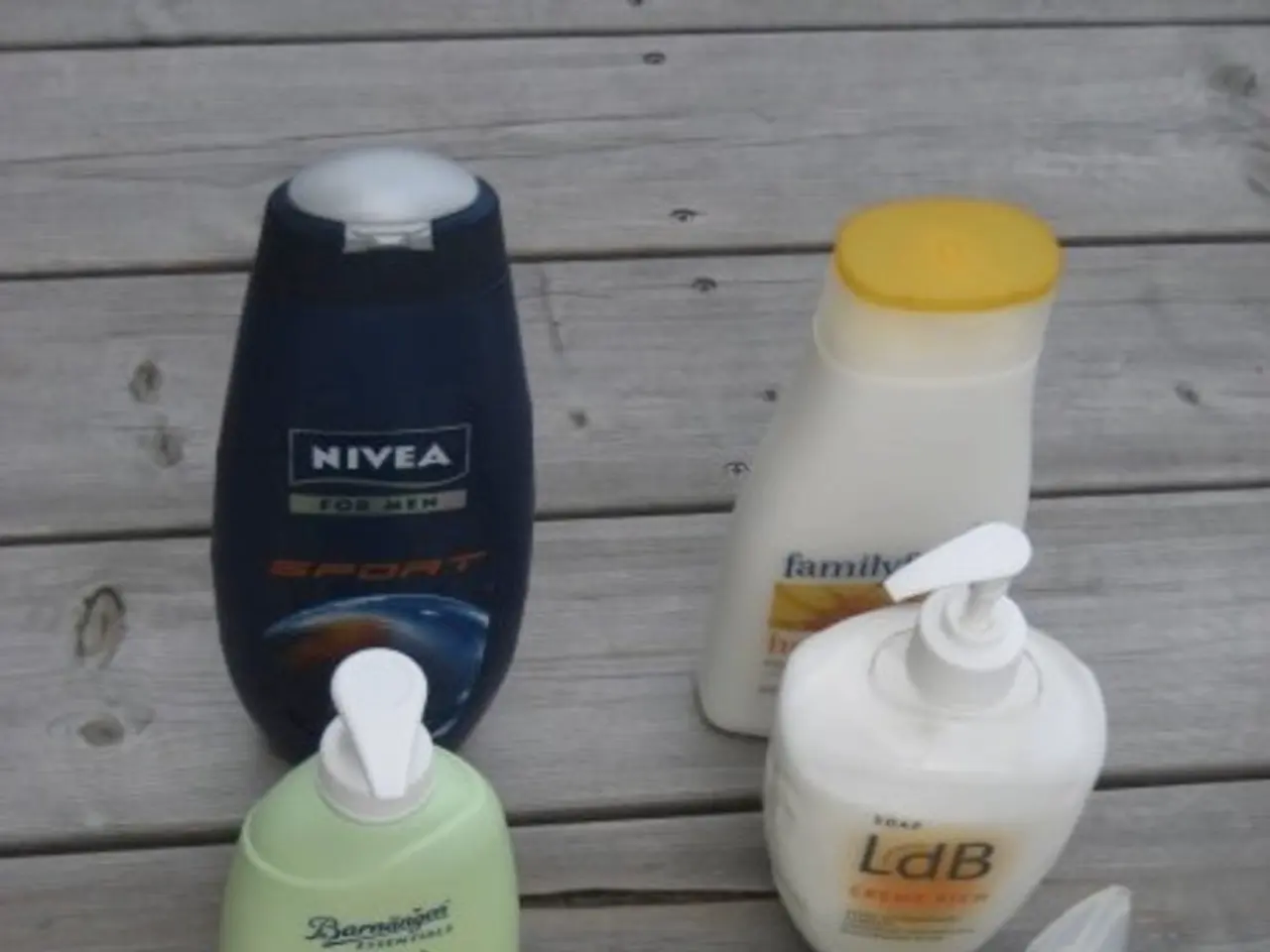Washing-Induced Grease Buildup: Reasons, remedies, and preventive measures
In the quest for healthy and shiny hair, dealing with greasiness can be a common challenge. Here's a guide to understanding the causes, treatments, and prevention methods for this issue.
A 2016 study looked at the effects of a green tea hair tonic on oily hair in 20 healthy participants, finding that after 28 days of use, the tonic significantly reduced oil on the scalp compared to a placebo and tonic base. This suggests that using products containing green tea may help control greasy hair.
Overproduction of sebum, a natural oil that nourishes hair, can become excessive due to factors like frequent hair treatments, hormonal changes, medication use, and medical conditions. Treatments focus on adjusting hair care routines: avoid overwashing to prevent dry scalp rebound oiliness, use shampoos suited for your hair type (especially clarifying shampoos to remove buildup), rinse hair thoroughly to avoid residue, and minimize heavy conditioners or hair products on roots.
Common causes of greasy hair after washing include overproduction of sebum, product buildup, washing hair too often, hard water mineral deposits, environmental pollution, certain medications, underlying health issues, and diet high in saturated fats or high glycemic foods. People with seborrhea, a skin condition that causes excess oil production, may find their hair appearing greasy.
Prevention methods include maintaining a balanced diet low in saturated fats and high glycemic index foods, managing any underlying health conditions, protecting hair from environmental pollutants, and avoiding excessive use of hair styling products that build up on the scalp. For Black people prone to an oily scalp, Johns Hopkins suggests cleansing the hair thoroughly no more than once a week and applying a hydrating conditioner to the hair after washing, avoiding the roots.
If seborrhea is not improving with home treatments, it's essential to see a doctor or dermatologist for further treatment and check for any underlying health issues, such as a hormone imbalance. People may also consider seeing a dietitian if they think diet plays a role in excessive oil production.
In summary, greasy hair after washing primarily arises from sebum overproduction, influenced by hair washing frequency, product buildup, environment, health, and diet, and is managed by a balanced hair care routine, diet modifications, and addressing underlying conditions. By understanding these factors, you can take steps towards maintaining healthier, less greasy hair.
[1] Journal of Cosmetic Dermatology (2016) [2] Dermatology Practical & Conceptual (2015) [3] Journal of Investigative Dermatology (2016) [5] British Journal of Dermatology (2015)
- Apart from hair care, the science of health-and-wellness also plays a role in managing greasy hair, as certain medical conditions and medications can lead to the overproduction of sebum.
- For instance, AD (Atopic Dermatitis), a type of eczema, can cause dryness, leading to increased sebum production and potentially greasy hair.
- Similarly, conditions such as bipolar disorder and Alzheimer's disease, which may require medication, could potentially contribute to excessive oil production on the scalp.
- Other skin conditions like psoriasis, dermatitis, ulcerative colitis, and Crohn's disease might also influence the level of sebum production, impacting hair look and feel.
- Moreover, systemic diseases such as diabetes, hepatitis, and obesity, which can be managed with proper diet and medication, may indirectly affect the overall health and appearance of the hair.
- Certain diseases are predictive of specific entities; for example, AQ (Autoimmune Quotient) can be indicative of several health conditions and may influence the likelihood of developing certain skin disorders.
- In a broader sense, dietary habits and health conditions play a part in maintaining a well-rounded skin-care regimen, including keeping hair shiny and ungreasy.
- Interestingly, according to a study published in the Journal of Cosmetic Dermatology (2016), green tea has shown potential benefits in reducing oiliness on the scalp when used as a hair tonic.
- Similarly, the Journal of Investigative Dermatology (2016) published a study suggesting that topical vitamin A could be useful in managing sebum production, offering a possible treatment for those struggling with greasy hair.
- It's essential to remember that maintaining a healthy and shiny hair isn't just about hair care but also includes overall health and wellness.
- Incorporating knowledge about the factors that contribute to greasy hair, as well as making appropriate adjustments to our diet and skincare routine, can help improve the look and feel of our hair.




